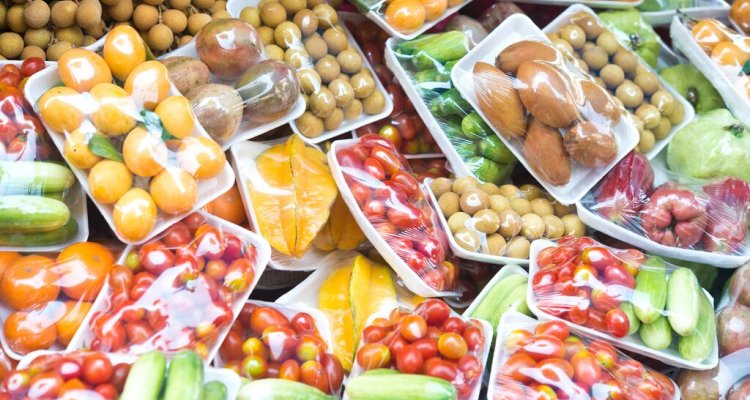
Project
Flex Forward
In the Flex Forward project, Wageningen Food & Biobased Research (WFBR) and Wageningen Food Safety Research (WFSR) cooperate with 11 industrial partners. The aim of the project is to evaluate the safety of recycled PE and PP for use in food contact applications.
Plastic packaging has many advantages: it promotes food safety and shelf life and is low-cost and lightweight. Newly proposed legislation will encourage or even force companies to use recycled content in their plastic packages, greatly changing how the fast-moving consumer good and plastic recycling industries operate.
Recent research indicates that hundreds of Food Contact Chemicals could be present in recycled plastics, a significant part of which was detected to migrate into food. Plastic quality and safety may be compromised with successive recycling, partially due to introducing non-intentionally added substances (NIAS), such as contaminants from previous uses, degradation products from recycling and additives added to tune the recycled plastic properties.
In the Flex Forward project, we will evaluate the safety of recycled PE and PP for use in food contact sensitive materials (FCSM) produced from sorted flexible PE and PP packaging. The data generated in the project will allow the industrial parties to evaluate the suitability, safety and performance of the recycled PE/PP as FCSM. Expertise on plastic performance evaluation (WFBR) will be combined with the state-of-the-art infrastructure for analysis and identification of (un)known food contaminants (WFSR).
One of the project partners is developing a dissolution and decontamination process for PE and PP. Short-loop recycling technologies like dissolution are considered climate-positive and have a high plastic-to-plastic yield. The new recycling concept also allows to remove contaminants such as additives.
Recycling of flex PE/PP is relevant for several reasons. Flexibles represent a significant volume, about 30% of the total plastic food packaging. Most of the recycled flexible PE and PP currently ends in blended polymers suitable for low-value applications only, so a higher quality would be very welcome. Currently there is insufficient knowledge on the contaminants that are present in the feedstock and the food safety aspect. Flexible packages can be considered a worst-case scenario; lessons learned can be used for other materials as well.